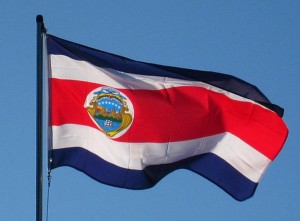In his inauguration speech, incoming President Carlos Alvarado of Costa Rica revealed plans to become the first country to commit to develop the production and exclusive use of hydrogen and other environmentally-healthy forms of energy for transportation and production of electricity. As there are no natural deposits of fossil fuels in Costa Rica, it must constantly earn U.S. dollars to pay for imported oil. Switching to hydrogen would end that liability.
Following is an unofficial translation of President Alvarado’s directive:
May 10, 2018
• Directs institutions within the Environment and Energy sectors to develop a 6-month plan to develop research, production and commercialization of hydrogen.
• President Carlos Alvarado stated that by 2020 Costa Rica should lead the implementation of the Paris accords by becoming a global decarbonization laboratory.
As part of a strategy toward the decarbonization of the economy, President Carlos Alvarado Quesada and Minister of Environment and Energy Carlos Manuel Rodríguez issued a directive to promote using hydrogen as fuel.
“Institutions within the environment and energy sectors are instructed, within the scope of their respective competences, to develop a plan to promote research, production and commercialization of hydrogen as fuel,” states the directive.
It adds that the plan shall be presented to the President of the Republic within the next six months.
In his inauguration speech this past Tuesday, President Alvarado commented that “decarbonization is the great task of our generation.”
“We must propel a determined and coordinated action of all sectors of society to start and irreversibly accelerate the process, not only by promoting transportation, electricity, hydrogen and other technologies, but by updating our institutions,” he said.
He also said that by the UN’s 2020 Conference on Climate Change, Costa Rica should lead the objectives of the Paris accords and become a global laboratory for decarbonization.
The directive issued this Tuesday deals with these objectives and looks to promote research and use of environmentally healthy energy alternatives as stated in the National Plan of Development.
The National Energy Plan 2015-2030 “requires a strategy of transition or path for diversifying the matrix of fuels toward alternative forms of energy other than oil derivatives.”
As proof of a clear political will to join the global trend toward decarbonization of economies to ensure truly sustainable growth, the incoming President and his ministers arrived to the inauguration in a hydrogen-fueled bus developed in Costa Rica by scientist and ex-NASA astronaut Franklin Chang Díaz.
